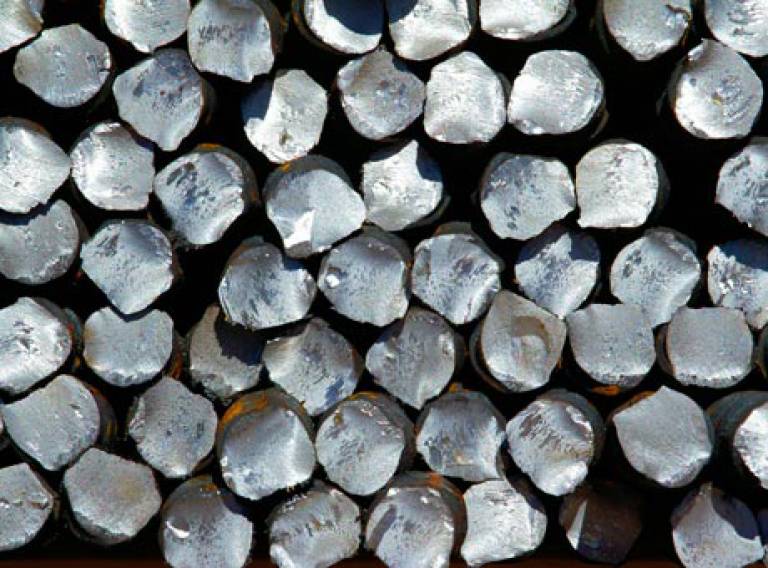UCL Institute for Sustainable Heritage 2014 highlights
18 December 2014

Prior to becoming an Institute, the UCL Institute Sustainable Heritage (UCL ISH) contributed to the Bartlett’s REF 2014 results as a successful research cluster within the Faculty. UCL ISH will continue to build on this success in 2015.
In October 2014, the UCL Institute for Sustainable Heritage welcomed the first cohort of doctoral students to the EPSRC Centre for Doctoral Training Science and Engineering in Arts, Heritage and Archaeology (SEAHA). This is an 8-year initiative to train at least 60 students in the emerging field of heritage science research, in which UCL, in collaboration with the University of Oxford and the University of Brighton, works with more than 50 industrial, heritage and research stakeholders. This is the largest single investment by EPSRC in heritage science research to date. The distinguishing feature of SEAHA is tri-partite supervision by academic, industrial and heritage supervisors, and a rich array of cohort activities, from field projects to SEAHA-wide events.
Research on dust at UCL ISH
Particulate matter in indoor environments is a well-known health concern; however, in heritage environments its deposition is also a conservation concern. At the UCL Institute for Sustainable Heritage, in collaboration with the UCL Department of Chemical Engineering, we developed an innovative computational model to explore the penetration and deposition of particulate matter, as well as the consequences of such deposition in relation to accelerated degradation of heritage materials of organic origin. This was presented in the frame of an international “Dust Colloquium” in 2014, and is currently the subject of a number of peer-reviewed publications as well as a PhD thesis, and has attracted interest from industrial as well as heritage partners.
Research
Research into the significance of volatile organic compounds (VOCs) in the indoor environment has significantly gained pace at UCL Institute for Sustainable Heritage. The last year saw a proliferation of activities, focusing predominantly on emissions from historic materials such as books and plastic materials – which can inform our knowledge of the composition as well as the conservation state of a historic object. Additionally, we have developed computational models to better understand the absorption and desorption of VOCs in indoor materials, and we have explored methods to evaluate how VOCs are perceived as smells and whether these can add to the visitor experience in a museum exhibition – the latter activity in collaboration with the Birmingham Museum Trust.
Research
In October 2014 the second workshop of the European Network on Heritage Values was held in Oslo. The Network is funded by the JPI- JPHE pilot programming on Cultural Heritage and Global Change and is led by UCL ISH and the UCL Institute of Archaeology (www.heritagevalues.net).
Research
In November 2014, as the acclaimed AHRC/EPSRC Science and Heritage Programme draws to a close, Professor May Cassar, Programme Director and Director of the UCL Institute for Sustainable Heritage was awarded a prestigious AHRC Impact Fellowship to investigate the Public Benefit, Cultural and Social Impact and Economic Growth Potential of Heritage Science. Professor Cassar will be spending some time on secondment to BIS, the UK Government’s Department for Business Innovation and Skills.
Teaching
November 2014 saw the MSc Sustainable Heritage students present the findings of their two week Malta fieldtrip to staff and board members of Heritage Malta (HM), the National Heritage Agency in Malta. The project looked at HM's fascinating collection of historic buses and marks the 11th year of the hugely successful partnership between HM and UCL ISH. In recognition of this long-standing relationship, the CEO of HM, will deliver the keynote address at the symposium to mark the 10th anniversary of the MSc Sustainable Heritage in March 2015.He will discuss the impact that 10 years of UCL student research has had on HM.
Publications
2014 saw the publication of two Special Issues edited by ISH staff. Professor May Cassar and Dr Kalliopi Fouseki edited the issue Energy Efficiency and Heritage Values in Heritage Buildings for the peer-reviewed journal The Historic Environment: Policy and Practice. Two Alumni students contributed their own seminal research carried out during their studies for the MSc in Sustainable Heritage. Professor Matija Strlic and Dr Katherine Curran edited the issue Polymers in Art and History for the highly acclaimed journal Polymer Degradation and Stability, which attracted 21 peer-reviewed papers from this emerging field of research.
 Close
Close

